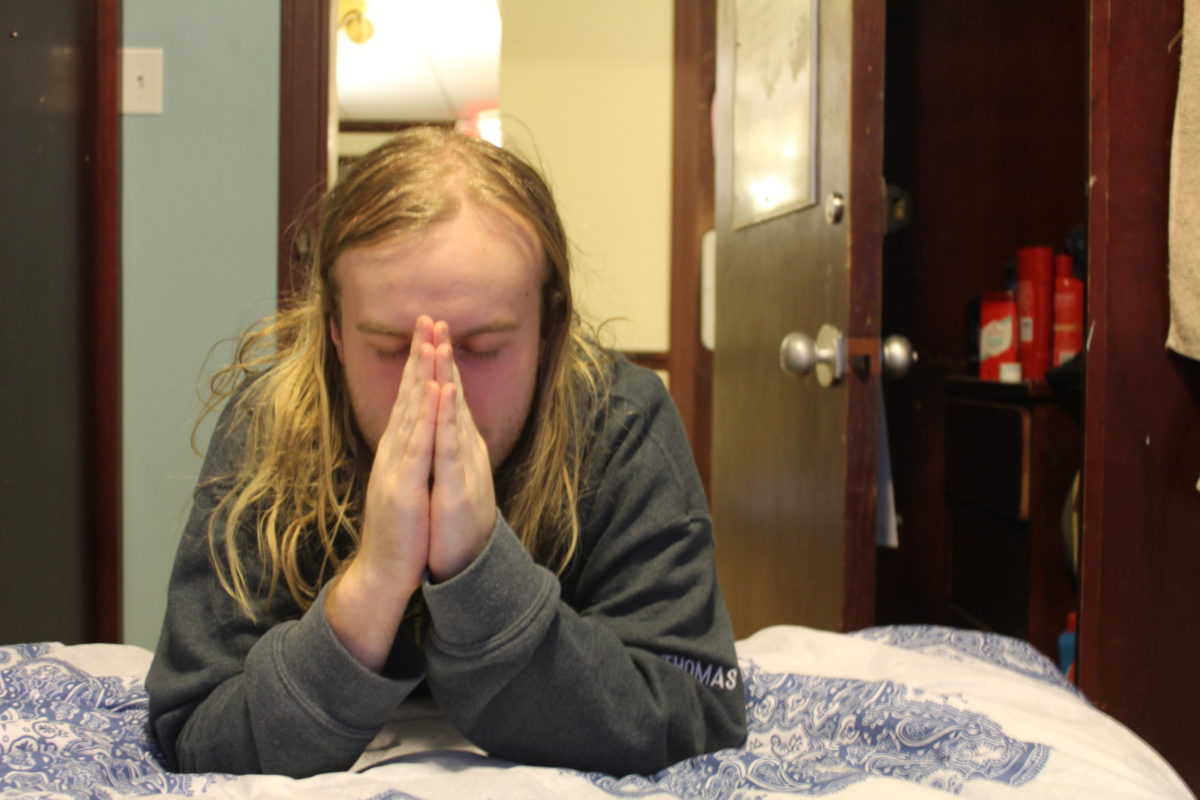
When was the last time you went to church? Last Sunday? Last month? When you were just a kid?
Michael George is the chair of the religious studies department at St. Thomas. When he began teaching at STU, 28 years ago, many more students embraced religion within their daily lives.
“When I first came here in the late ‘80s, whenever I taught a course I could depend on kids, who were primarily Baptist, to understand and know the Bible,” said George.
He now find students have little significant awareness when it comes to their own religious traditions.
“I think that there’s a general consensus, for better and worse, that religion has been superseded as an unnecessary social phenomenon. Now, it’s considered something that is optional and up to the individual choice,” said George.
According to the Pew Research Center, in 1988 43 percent of Canadians said they attended church services at least once a month. In 2012, this number dropped to 27 percent.
However, George still believes there’s a place for attending a place of worship in today’s society.
“I think that there’s always going to be a demand for people to have a space that is somehow separate, where they can be alone with their thoughts or themselves,” he said. “I think that churches, as actual architectural spaces, are very instructive about a whole range of human attitudes, ideas and perspectives.”
Danielle Brewer, a third-year STU student, is an active member of the Douglas Baptist Church.
“Saying that going to church is what being religious is, I think that is a really naive statement,” said Brewer.
“Going to church isn’t going to do anything for anyone unless you are engaged in the message, or you believe what is being said.”
Brewer attends church each week not only for the sense of community, but also for the lessons she might not be able to learn on her own.
“You’re learning new things. I could read a scripture ten times over, and then the pastor points out things that I would have never picked up on because he has more knowledge in the area than I do.”
Brewer said attendance at her church hasn’t suffered because they’re constantly developing new programs and activities. For example, one of the newer programs offered at Douglas Baptist gives university students the chance to have a home-cooked meal after a service.
“I guess in a way it’s like an incentive to go, but that’s not the intention. The intention is to get them to go to church and hopefully there will be some light bulbs going off,” she said.
Kem Harris-Lindstrom, a fourth-year at STU, doesn’t attend church and also doesn’t believe religious institutions hold the key to connecting with God.
“Personally, my religious standings are rooted in the harmonizing of energies with a community and yourself,” said Harris-Lindstrom.
However, Harris-Lindstrom respects the need for places of worship in today’s society.
“Sure you can ‘home school’ the soul yourself, but the amount of knowledge and spiritual energy you gain from physically participating in the lectures of the soul and rituals is exponentially more,” Harris-Lindstrom said.
